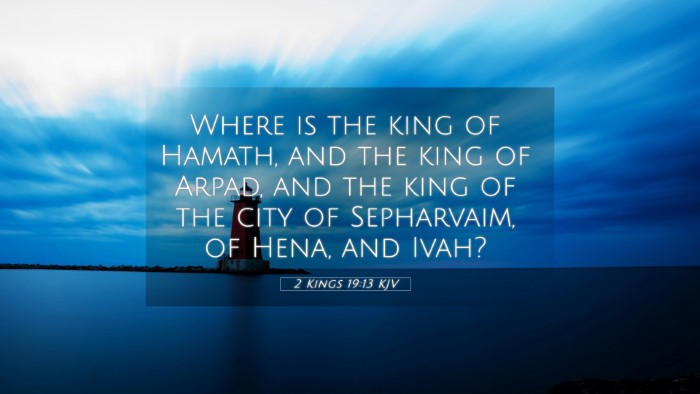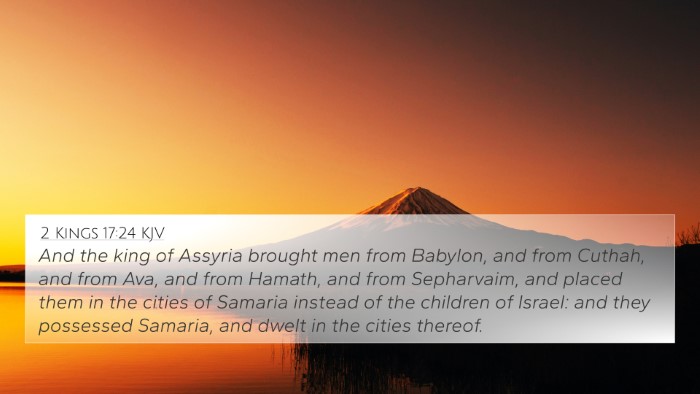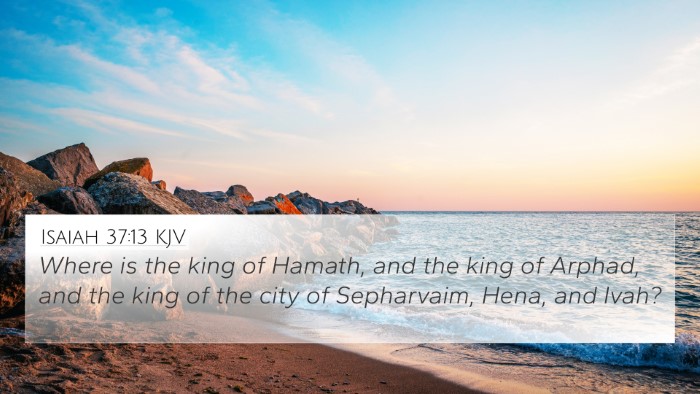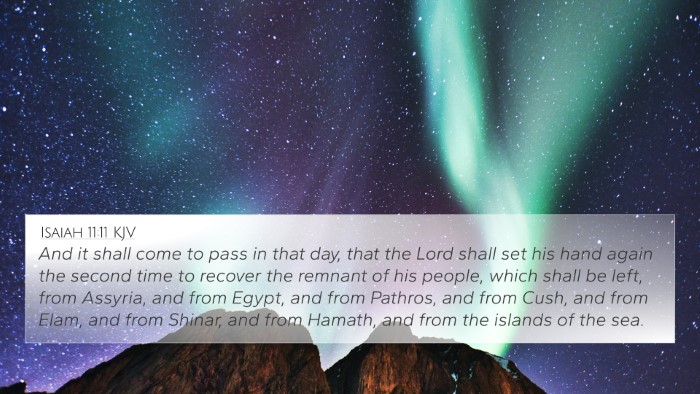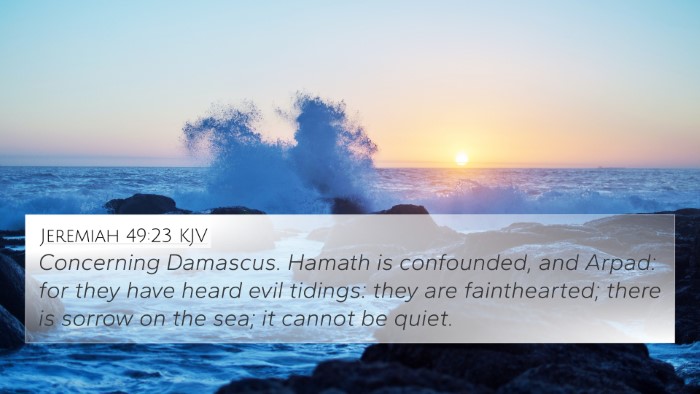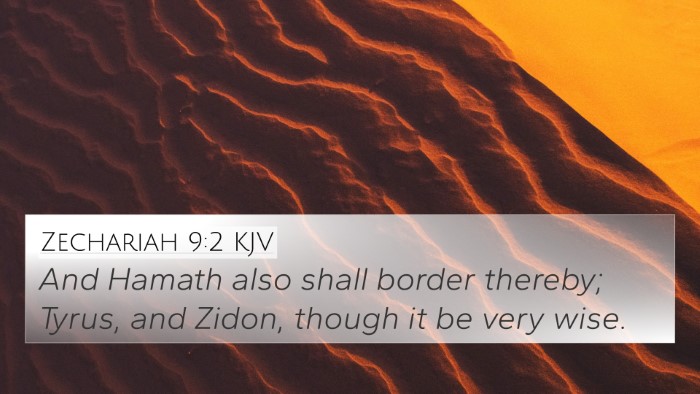Understanding 2 Kings 19:13
Verse Text: "Where is the king of Hamath, the king of Arpad, and the king of the city of Sepharvaim, Hena, and Ivah?" (2 Kings 19:13, ESV)
Overview
This verse emerges in the context of a significant challenge faced by King Hezekiah of Judah, who received a threatening message from Sennacherib, the king of Assyria. In this passage, Hezekiah is reminded of the fallen kingdoms that once stood against God’s sovereignty, underscoring the futility of rebellion against divine authority.
Commentary Insights
The following insights are drawn from public domain commentaries, including those by Matthew Henry, Albert Barnes, and Adam Clarke.
-
Matthew Henry:
Henry emphasizes that the mention of the cities and their kings illustrates the power of Assyria and serves to highlight their defeat. His commentary points out that these locations represented the enemies of Israel, and their downfall reflects God's involvement in history.
-
Albert Barnes:
Barnes interprets this verse as a rhetorical question posed by Sennacherib, representing his confidence in Assyria's might. Barnes highlights that the specific mention of cities signifies God's sovereignty over nations and His ability to protect His people.
-
Adam Clarke:
Clarke draws attention to the parallelism in the historical narrative where defeated kings are called upon to question Sennacherib's arrogance. He explains that it serves as a reminder to Hezekiah and the people of Judah that they are not alone, as many other nations have succumbed to God's will.
Bible Cross References
This verse can be linked to several other Scriptures that illuminate its meaning:
- Isaiah 36:19: "Where are the gods of Hamath and Arpad? Where are the gods of Sepharvaim? Have they delivered Samaria out of my hand?"
- 2 Chronicles 32:14: "Who was there among all the gods of those nations that my fathers utterly destroyed, that could deliver his people out of my hand, that your God should be able to deliver you out of my hand?"
- Isaiah 37:13: "Where is the king of Hamath, the king of Arpad, and the king of the city of Sepharvaim, Hena, and Ivah?"
- 2 Kings 18:34: "Where are the gods of Hamath and Arpad? Where are the gods of Sepharvaim?"
- Jeremiah 46:25: "The Lord of hosts, the God of Israel, said: Behold, I am bringing punishment upon Ammon of Thebes..." (showing God's power over nations).
- Psalms 22:28: "For the kingdom is the Lord's, and he rules over the nations."
- Daniel 4:17: "The sentence is by the decree of the watchers, the decision by the word of the holy ones, to the end that the living may know that the Most High rules in the kingdom of men..."
- Revelation 11:15: "The kingdom of this world has become the kingdom of our Lord and of his Christ, and he shall reign forever and ever."
Thematic Connections
This verse introduces themes of divine sovereignty and judgment, connecting to various Biblical narratives. For instance:
- Divine Sovereignty: The portrayal of fallen kings underscores God's authority over all nations, reminiscent of themes found in Isaiah and the Psalms.
- Judgment Against Idolatry: The reference to conquered nations illustrates the consequence of turning against God, linking to the historical accounts of Israel's apostasy.
- Encouragement for the Faithful: The passage serves to remind Hezekiah and the people of Judah that despite the threats they face, God remains in control.
Conclusion
2 Kings 19:13 encapsulates a moment of tension where the might of Assyria stands in stark contrast to the enduring sovereignty of God. The commentary insights and cross-references provided serve to deepen the understanding of this passage within the larger Biblical narrative. Through these connections, one can see the overarching theme of God's ultimate authority and the call to steadfast faith amid adversities.
Further Study Suggestions
For those seeking to explore more about the connections and comparisons among biblical texts, utilizing tools for Bible cross-referencing can enhance your study:
- Utilize a Bible concordance to find key themes and similar scriptures.
- Engage in cross-reference Bible study methods to discover deeper links.
- Examine comparative studies on the prophetic messages and their fulfillments in the New Testament.

